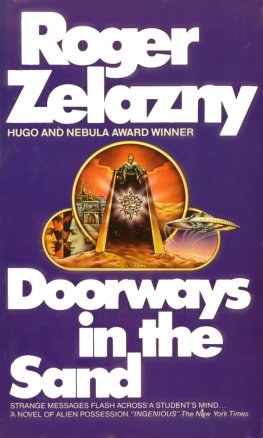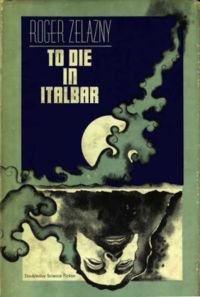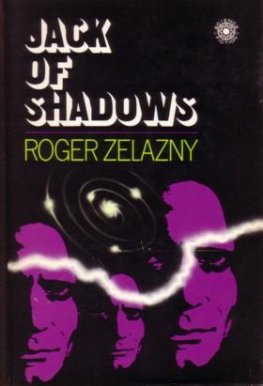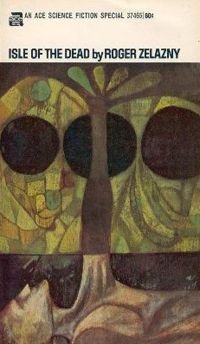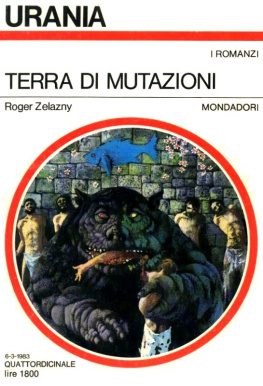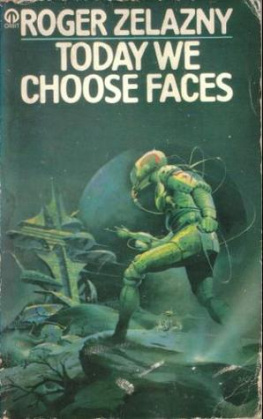Roger Zelazny - The Last Defender Of Camelot
Here you can read online Roger Zelazny - The Last Defender Of Camelot full text of the book (entire story) in english for free. Download pdf and epub, get meaning, cover and reviews about this ebook. genre: Science fiction. Description of the work, (preface) as well as reviews are available. Best literature library LitArk.com created for fans of good reading and offers a wide selection of genres:
Romance novel
Science fiction
Adventure
Detective
Science
History
Home and family
Prose
Art
Politics
Computer
Non-fiction
Religion
Business
Children
Humor
Choose a favorite category and find really read worthwhile books. Enjoy immersion in the world of imagination, feel the emotions of the characters or learn something new for yourself, make an fascinating discovery.
- Book:The Last Defender Of Camelot
- Author:
- Genre:
- Rating:4 / 5
- Favourites:Add to favourites
- Your mark:
- 80
- 1
- 2
- 3
- 4
- 5
The Last Defender Of Camelot: summary, description and annotation
We offer to read an annotation, description, summary or preface (depends on what the author of the book "The Last Defender Of Camelot" wrote himself). If you haven't found the necessary information about the book — write in the comments, we will try to find it.
The Last Defender Of Camelot — read online for free the complete book (whole text) full work
Below is the text of the book, divided by pages. System saving the place of the last page read, allows you to conveniently read the book "The Last Defender Of Camelot" online for free, without having to search again every time where you left off. Put a bookmark, and you can go to the page where you finished reading at any time.
Font size:
Interval:
Bookmark:
Roger Zelazny
The Last Defender Of Camelot
INTRODUCTION
Though it is contrary to my general practice to introduce my own works, I decided to say a few words to gobefore this collection and some before each story itselfbecause I have put this one together out of materialsdrawn from the beginning, middle and recent sections ofthe eighteen-year period I have been writing. I havechanged during that time, a condition I share with theworld around me, and I redden now or blanche (as thecase my be) to read over much that I once consideredadequate. For this reason, there are dozens of stories thatI prefer keeping interred beneath bright covers in yellowing sheets, stories that 1 will never willingly see reprinted. I feel some affection for the ones I have gatheredhere, however, and I will say some things about them inthe proper places.
The nature of my work and my working habits shiftedradically in the late 60's, when I went in more heavilyfor the writing of novels. I had started out as a shortstory writer, and I still enjoy writing short storiesthough I no longer do nearly as many as I used to in ayear's time. The reason is mainly economic. I went fulltime in the late 60's, and it is a fact of writing life that,word for word, novels work harder for their creatorswhen it comes to providing for the necessities and joys ofexistence. Which would sound cold and cynical, exceptthat I enjoy writing novels, too.
I have no desire to explain, attempt to justify or apologize for anything that I have written. I have always feltthat a story should be able to deal with such mattersitself. My individual forepieces are intended only to placethem within the context of my own evolving experiencewhich makes this an autobiographical work for me, ifnot for anyone else.
So, to even things up and answer a number of requests, I'll tell you a little about myself (purely subjective, not dust jacket material)
If I couldn't write worth a damn, I think I'd like toown a hardware store. I've long been fascinated by theenormous varieties of tools used to maintain our society,as well as the clips, hinges, pins, brads, screws, pulleys,wires, chains, clamps and pipes that hold it together. Notto mention the putty, piaster, cement and paint that keepit looking well io places. Even more than a book store,where I probably wouldn't get to read much anyway, Ibelieve that I could have been fairly happy m a goodgeneral hardware shop, But then, I would probably open late and stay openlate because I'm a night person- I prefer sunsets to sunrises. I pick up steam in the late hours. I've probablydone most of my best writing after midnight.
There is a group of writers living within about a 100mile diameter circle around here who get together once amonth for lunch. On one such occasion, Stephen Donaldson asked me what book by someone else I wished I hadwritten. I gave him a quick answer which seemed appropriate at the moment. I thought about it later, though,and changed my mind. Something like War and Peace orUlysses, while impressive or dazzling, massively tragic orcomic and invested with tons of scholarly and lay manawould only be egotistical choices, not things that I couldhave enjoyed writing as well as enjoyed having writtenif I were able. I got it down to two booksone tragic,one comic and I couldn't decide between them: Malraux's Man's Fate and Norman Douglas' South Wind. Ihave nothing deeply philosophical to say about either ofthem here, just a wistful bit of self-revelation and anattempt to answer Steve's question honestly in a placewhere I am talking about myself, anyway.
The most encouraging thing I have seen in recent yearswas nothing at all. That is to say, nothing where I hadexpected to see something. Back m 1975, I visited TrinitySite, which is open to the public one day a year. It hadbeen some thirty years since the first atomic bomb wasdetonated over that hot, dusty, windy plain. A long lineof cars was met by a military escort at a shopping centernorth of Alamogordo and taken some seventy miles outinto the White Sands Missile Range. We finally parked,disembarked and walked to Ground Zero. There wasrealty nothing to see. I had read how that first blast hadleft a crater of fused aluminum silicates twenty-five feetdeep and a quarter-mile across. It was gone. The desertwinds had filled it in, the desert plants (unmutated) hadtaken root above it. The radiation level was only slightlyabove normal background. The place looked pretty muchlike parts of my backyard. After a moment's disappointment at the absence of a spectacle following the longdrive, I suddenly felt elated as I realized how completelythe earth had recovered in the span of a single generation, Life's resilience.
Some years ago, a scientist who was planning onbeaming some television pictures outward, in an attemptto communicate something concerning us and our ways towhatever might be watching the late show, asked meto suggest some of the content for the program. Alongwith a lot of predictable technical and social stuff, I recall suggesting a symphony orchestra with closeups of theindividual instruments being played, sailboats andI believea flight of hot air balloonsas these seemed threesorts of objects where form has been so perfectly anduniquely married to function that our tools have becomeworks of artwhich I suppose puts even my estheticthinking into a kind of Platonic hardware store.
I enjoy being a writer and I even like the paperwork.That's enough about the author. Here are the stories.
PASSION PLAY
This was my first published story, as it states below. Awhile back, Jonathan Ostrowsky-Lantz, the editor ofUnearth: The Magazine of Science Fiction Discoveriesa noble publication dedicated to the encouragement ofnew science fiction writersbegan a policy of reprintingfirst stories by professionals in the area, along withintroductory essays by the authors telling how the storiescame to be written and including some advice to beginning writers.
For whatever such a preface may be worth in thisplace, 1*11 cause it to occur between here and the storyitself
INTRODUCTION
I had wanted to write for many years, but did nothave an opportunity until I had completed my master'sthesis and taken a job with the government. I wasassigned to an office in Dayton, Ohio for training, and Ireported there on February 26, 1962. As I had decidedto try writing science fiction, I spent a week reading allthe current science fiction magazines and some randompaperbacks. I then sat down and began writing, everyevening, turning out several stories a week and sendingthem off to the magazines. I drew a number of rejectionslips, and then in March I received a note from CeleGoldsmith at Ziff-Davis, saying that she was buying thisstory, "Passion Play." It appeared in the August, 1962issue of Amazing Stories.
Whether it actually was or was not, it seemed to mean almost classic case of applied insight, because I haddone something right before I wrote it which I had notdone before. I had gathered together all of my rejectedstories and spent an evening reading through them to seewhether I could determine what I was doing wrong. Onething struck me about all of them: I was overexplaining.I was describing settings, events and character motiva-tions in too much detail. I decided, in viewing thesestories now that they had grown cold, that I would find itinsulting to have anyone explain anything to me at thatlength. I resolved thereafter to treat the reader as I wouldbe treated myself, to avoid the unnecessarily explicit, touse more indirection with respect to character and motivation, to draw myself up short whenever I felt thetendency to go on talking once a thing had been shown.
Fine. That was my resolution. I still had to find a storyidea to do it with, as I was between stories just then.Now, I do not know how other people do it, but there isa certain receptive state of mind that I switch on whenI am looking for a short story notion. This faculty isdulled when I am working on a novel, as I Usually amthese days, so that if I want it now it generally takes mea full day to set up the proper mental climate. It comesfaster if I am between books. Whatever, in those days Ikept it turned on almost all the time.
Font size:
Interval:
Bookmark:
Similar books «The Last Defender Of Camelot»
Look at similar books to The Last Defender Of Camelot. We have selected literature similar in name and meaning in the hope of providing readers with more options to find new, interesting, not yet read works.
Discussion, reviews of the book The Last Defender Of Camelot and just readers' own opinions. Leave your comments, write what you think about the work, its meaning or the main characters. Specify what exactly you liked and what you didn't like, and why you think so.

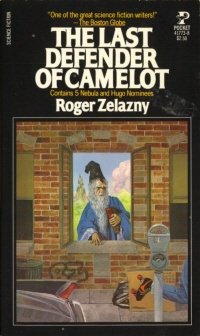
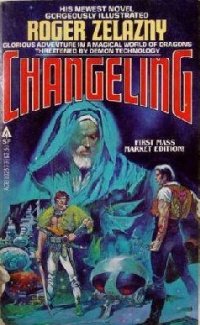
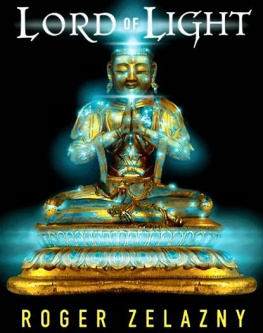
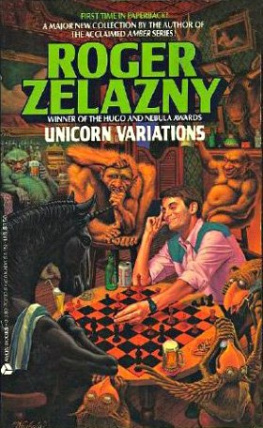
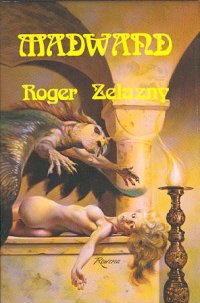
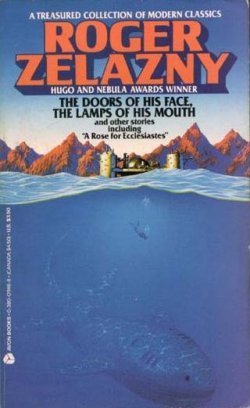
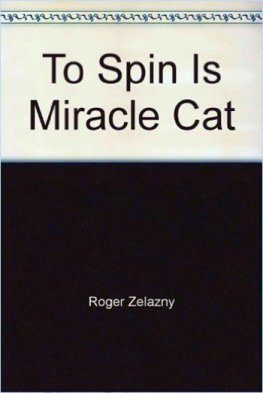
![Roger Zelazny - 24 Views of Mt. Fuji, by Hokusai [Illustrated]](/uploads/posts/book/536181/thumbs/roger-zelazny-24-views-of-mt-fuji-by-hokusai.jpg)

